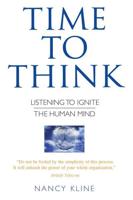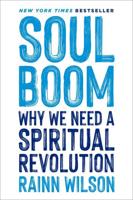Publisher's Synopsis
Simply put, emotional intelligence is your ability to recognize and understand your feelings, as well as those of others, and then use that understanding to successfully motivate yourself and others and manage emotions and relationships.Think of emotional intelligence as EQ. Your IQ gives you a rough idea about how mentally intelligent you are, and your EQ describes how emotionally capable you are (your emotional quotient as opposed to your intelligence quotient).When you think about it, what is more important in cultivating and maintaining great relationships? Your emotions are dramatically more influential than your intelligence level on the relationships you have at home and on-the-job.This means if you can develop a high level of emotional intelligence, any time you interact with another person you can make that interaction beneficial for both you and the other person you are dealing with.However, if you don't know how to ramp up your emotional intelligence, the following scenarios are going to be very familiar to you: -You are not aware of your own feelings or their sources-You don't know how to self-regulate your emotional state-Your emotional vocabulary is limited-You misunderstand why other people act the way they do-It is your belief that other people just don't know how to listen-You are always arguing with someone-You would rather ignore or abandon emotionally charged situations-Friendships and other close personal relationships suffer-You don't know how to communicate what you are feeling and thinking so that others understand you-People know you as the person that constantly criticizes-You feel like everyone is way too sensitive-You blame your lack of career success on othersBut, it doesn't have to be this way. When you truly understand emotional intelligence, your relationships and emotional wellness improve dramatically. You stop "bumping your head up against the wall" trying to understand other people, and why they do what they do.You begin to understand and manage your emotions and self-regulate in proactive and positive ways.Any time you interact with someone, you know how to look for verbal and nonverbal cues that reveal what someone is really "saying", rather than that what they may verbally be saying.You enjoy less stress and anxiety because it is as if a veil is lifted from your life, revealing the real meaning, true intentions and core emotional influences that are driving your behaviors, and the behaviors of other people.You can enjoy all of the above benefits and reach unlimited success in our new book "The Complete Guide to Increasing Your Emotional Intelligence."In it, you'll discover ...-What emotional intelligence is, and why it is so much more important than IQ for helping you succeed in many areas of life-How to increase social skills and interpersonal awareness-The rewards of high emotional intelligence-Why it is important to practice empathy -Signs that your emotional intelligence level might need some work-The 5 key aspects of emotional intelligence, and simple steps to make them stronger-Why you have to learn to be responsible for yourself and your actions before your emotional intelligence will grow-A list of different emotions and what those emotions mean about the person displaying them (this section of the report alone could improve all your relationships, at home and at work)-The importance of being mindful-There is a reason your intuition is trying to tell you something. You need to start listening-50 proven practices, tips and hacks for raising your emotional intelligence level (a goldmine of information that leads to less stress and frustration, and more fulfillment and success)-And much more...Start working on increasing your emotional intelligence today and be a better person starting tomorrow!







